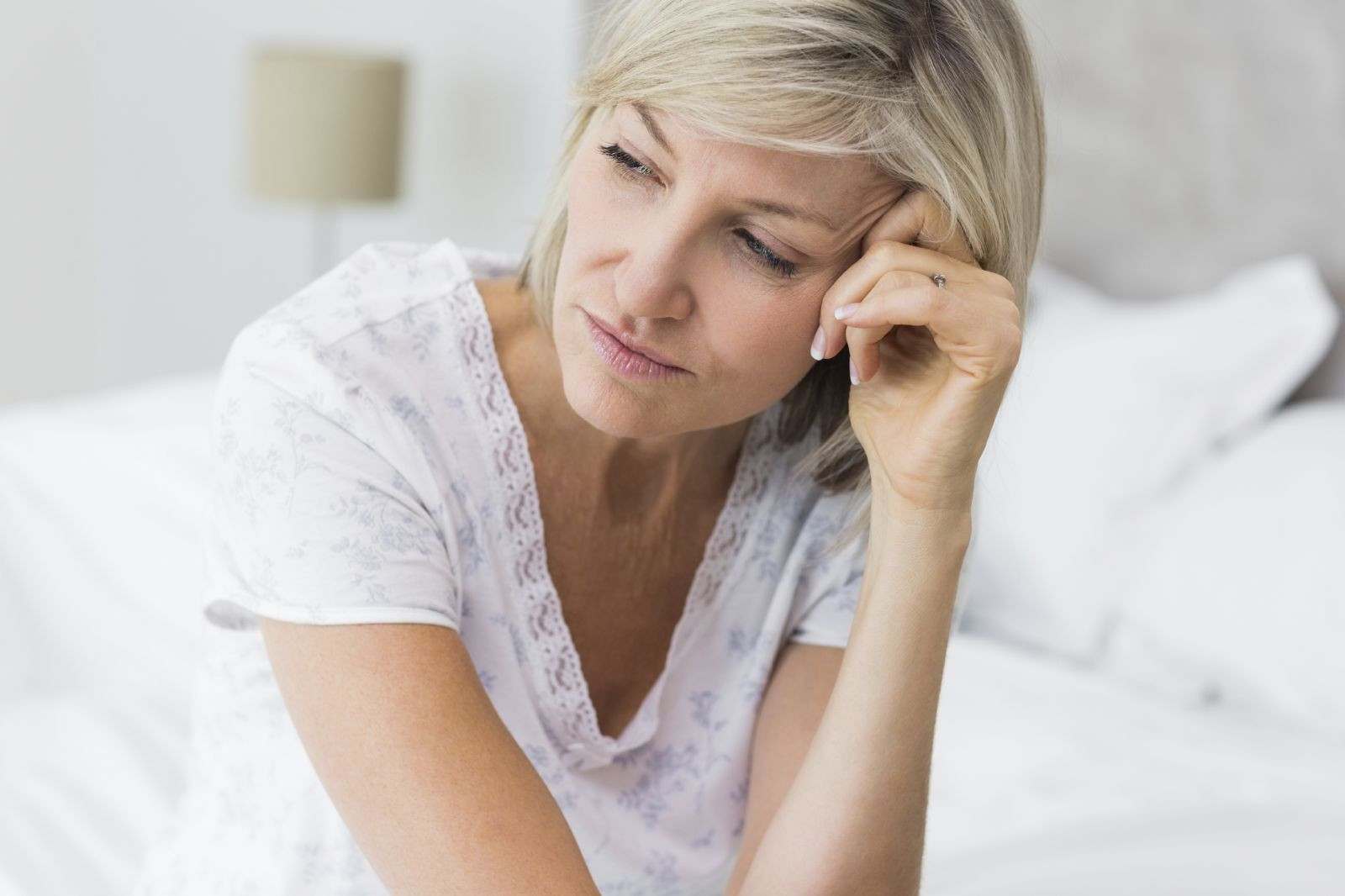
New thinking about plaque in arteries that feed the brain

Want to prevent shifting teeth? Maybe you need retainers

What you need to know about the new dietary guidelines

Food that’s healthier for people and planet can be cheaper, too

New evidence that polyphenol-rich foods help the heart

8 simple ways to reduce ultra-processed foods in your diet

How to curb your stress eating

How to spot Parkinson’s disease symptoms

Heart failure symptoms in women: How they’re different

GERD diet: Foods to avoid to reduce acid reflux
Nonhormonal treatments for menopause
Lifestyle changes, mind-body approaches, and nonhormonal prescription medications may help relieve menopause symptoms
 Menopause—medically defined as the absence of a menstrual period for a year—is due to a decline in estrogen and progesterone production by the ovaries. About 60% to 80% of women experience menopause symptoms, most commonly hot flashes and vaginal dryness. Studies indicate that menopause symptoms can last a decade or longer, affecting substantial numbers of women in their 60s.
Menopause—medically defined as the absence of a menstrual period for a year—is due to a decline in estrogen and progesterone production by the ovaries. About 60% to 80% of women experience menopause symptoms, most commonly hot flashes and vaginal dryness. Studies indicate that menopause symptoms can last a decade or longer, affecting substantial numbers of women in their 60s.
Although randomized clinical trials indicate that hormone therapy can be safe and effective way to control most menopause symptoms, it's not considered a first-line approach. Dr. JoAnn Manson, Michael and Lee Bell Professor of Women's Health at Harvard Medical School, suggests trying lifestyle modifications for at least three months after symptoms begin before trying hormone therapy.
Nonhormonal treatments for hot flashes
The following have been found effective in reducing the discomfort from hot flashes—both those that interrupt daily life and those that disturb sleep:
- Mind-body approaches. Cognitive-behavioral therapy and, to a lesser extent, clinical hypnosis have been shown to be effective in reducing hot flashes. There is also growing evidence that mindfulness-based stress reduction can reduce the severity of hot flashes.
- Medication. Paroxetine (Paxil and others)—a selective serotonin reuptake inhibitor (SSRI) also used to treat depression—is the only nonhormonal medication approved by the Food and Drug Administration for managing hot flashes. However, other related antidepressants, including SSRIs like fluoxetine (Prozac) as well as norepinephrine reuptake inhibitors like venlafaxine (Effexor), have also shown to be defective in treating hot flashes. Two other prescription medications, gabapentin (Neurontin)—a drug for chronic nerve pain—and clonidine (Catapres)—a blood pressure drug—may also help hot flashes.
- Weight loss. Women who are overweight or obese tend to report greater discomfort from hot flashes, compared with women of normal weights. A few studies have shown that losing weight helps lower the intensity of hot flashes.
- Soy. There is quite a bit of evidence that soy products can alleviate hot flashes, but the degree of relief provided varies widely. In general, soy high in diadzein is most effective. Diadzein is a compound that can be converted in the intestines to equol, a chemical that attaches to estrogen receptors to duplicate some of estrogen's effects in the body. However, because only about 50% of Asian and 25% Caucasian women carry the intestinal bacteria necessary to produce equol from daidzein, equol supplements may be more effective than soy. There is early evidence that a 10-milligram S-equol supplement taken twice a day may control hot flashes with no harmful side effects. However, more studies are needed to better determine its effectiveness.
Common treatments that may not relieve menopause symptoms
Although several nonhormonal treatments for menopause are often recommended, there is not enough evidence from clinical studies to recommend them. These include lifestyle changes like getting more exercise or practicing yoga, deep breathing, or relaxation techniques. Nor, despite scores of studies, is there convincing evidence that widely used herbal remedies like black cohosh, dong quai, ginseng, and wild yam are effective, either.
Nonhormonal treatments for vaginal dryness
Following menopause, vaginal tissues become thinner and drier, leading to itching and often making intercourse painful. According to Harvard Special Health Report Women's Health: Fifty and Forward, two nonhormonal approaches—lubricants and moistures—have proven to be effective in relieving vaginal symptoms.
- Vaginal lubricants. These water-based or silicone-based liquids or gels reduce friction during intercourse. Lubricants are not absorbed into the skin so don't provide long-lasting relief. They should be applied right before having sex.
- Vaginal moisturizers. These products adhere to or are absorbed by vaginal tissues, so they provide longer-lasting relief from itching and pain. Unlike lubricants they are designed to be applied regularly.
– By Beverly Merz
Executive Editor, Harvard Women's Health Watch
Disclaimer:
As a service to our readers, Harvard Health Publishing provides access to our library of archived content. Please note the date of last review or update on all articles.
No content on this site, regardless of date, should ever be used as a substitute for direct medical advice from your doctor or other qualified clinician.

New thinking about plaque in arteries that feed the brain

Want to prevent shifting teeth? Maybe you need retainers

What you need to know about the new dietary guidelines

Food that’s healthier for people and planet can be cheaper, too

New evidence that polyphenol-rich foods help the heart

8 simple ways to reduce ultra-processed foods in your diet

How to curb your stress eating

How to spot Parkinson’s disease symptoms

Heart failure symptoms in women: How they’re different

GERD diet: Foods to avoid to reduce acid reflux
Free Healthbeat Signup
Get the latest in health news delivered to your inbox!
Sign Up

